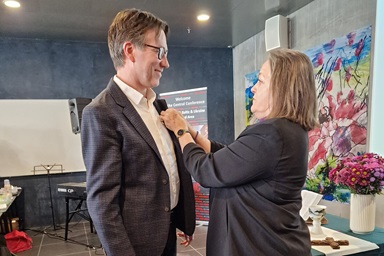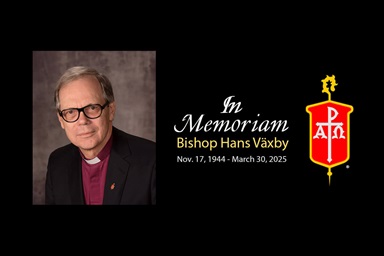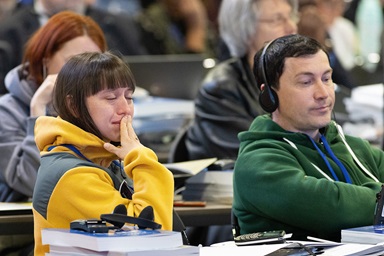United Methodists in Germany are encouraging their government to work toward a negotiated, peaceful settlement of the dispute between Russia and Ukraine.
An open letter sent earlier this month to Angela Merkel, the federal chancellor of Germany, and to Frank-Walter Steinmeier, the federal foreign minister, expressed concern about politicians and those in the media demanding action against Russia.
“Through such wording, we fear the preparation for the ground of approval of military solutions in the conflict in Ukraine and beyond,” stated the English translation of the resolution adopted by the United Methodist Germany South Annual Conference during its May 28-June 1 meeting in Stuttgart. Bishop Rosemarie Wenner leads the Germany episocopal area.
After street protests help bring about a change in the Ukrainian government earlier this year, Russia annexed the Crimean peninsula and has been accused of supplying weapons to separatists in eastern Ukraine.
According to a June 26 Reuters report, Merkel called Russian President Vladimir Putin for a second time in two days to try to find a way to prolong the Ukrainian government’s ceasefire, due to expire June 27.
Commitment to peace
Thomas Kemper, a German United Methodist who serves as top executive of the United Methodist Board of Global Ministries, said the appeal for support of a negotiated settlement between Moscow and Kiev “reflects a strong commitment to European and world peace on behalf of our small but alert German church community.”
The letter to the German federal government invokes the United Methodist Social Principles and the belief that war is “incompatible” with Christ’s teachings. “German United Methodists take with greatest seriousness our church’s formal rejection of military action as a means of dealing with political differences and border disputes between nations,” Kemper said.
German government officials must distance themselves “from calls for military reorientation and the armament of the NATO,” the letter said, and work diplomatically to de-escalate the situation by ceasing all hostilities immediately, vacating public buildings and involving all sides of the conflict in negotiations and an active dialogue process.
Kemper pointed out that The United Methodist Church’s Eurasia episcopal area includes congregations and social ministries in both Russia and Ukraine. Recently, he noted, the Board of Global Ministries was unable to place a mission intern in eastern Ukraine “because of the clashes between pro-Russia separatists and the national government.”
“We constantly and prayerfully watch the situation in collaboration with Bishop Eduard Khegay of Eurasia,” Kemper said. “We rejoice that it has been possible this year to hold the annual conference for Ukraine. Our missionaries in the region engage in efforts for both reconciliation and humanitarian relief.”
“In this politically conflicting time, the church continues to share the gospel way – the way of active ministry to people, preaching of hope and faith, proclamation of God’s power and providence in the history of humankind,” Khegay wrote in a public prayer in March.
In a message posted after the 2014 Ukraine and Moldova Annual Conference, held April 25-27 in Uzhorod, Western Ukraine, the bishop thanked “sisters and brothers in Eurasia and all over the world who pray for peace and unity in Ukraine, and I thank God for our United Methodist people who faithfully continue to share the gospel of Jesus Christ in the midst of conflict and uncertainty. We all turn to Jesus the Creator of true peace.”
Kemper said the denomination’s mission agency joined its voice the South Germany Conference “in calling upon all governments to advance the use of diplomacy rather than armaments in ending the current tension between Russia and Ukraine, and we also make that appeal directly to the leaders of the two countries.”
*Bloom is a United Methodist News Service multimedia reporter based in New York. Follow her at http://twitter.com/umcscribe.or contact her at (646) 369-3759 or [email protected].
Like what you're reading? Support the ministry of UM News! Your support ensures the latest denominational news, dynamic stories and informative articles will continue to connect our global community. Make a tax-deductible donation at ResourceUMC.org/GiveUMCom.




